#vincenzo bellini
Text
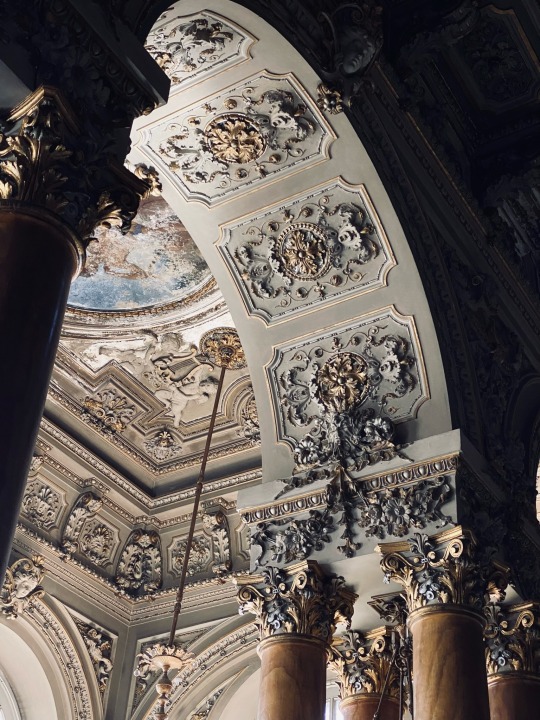
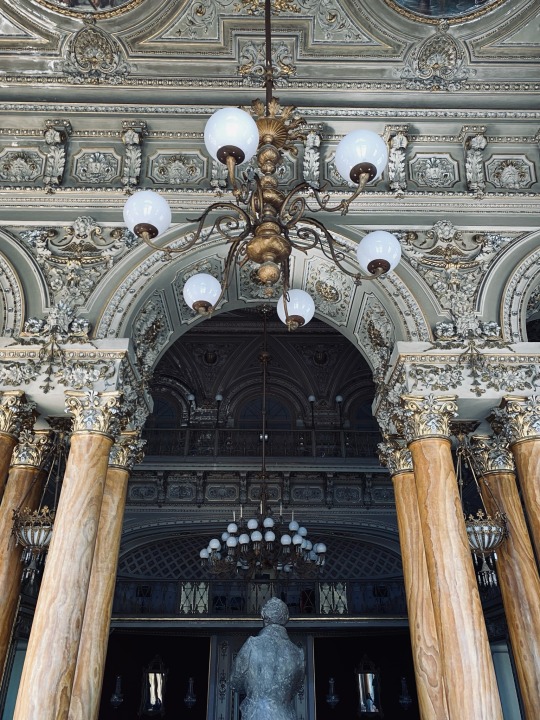
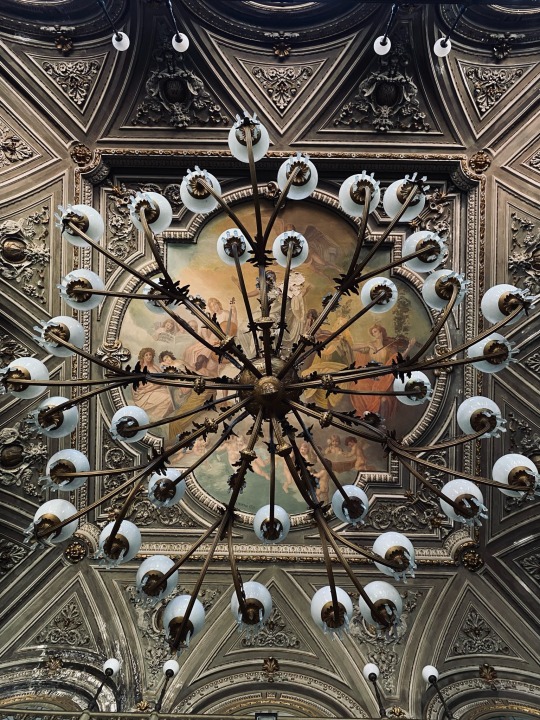

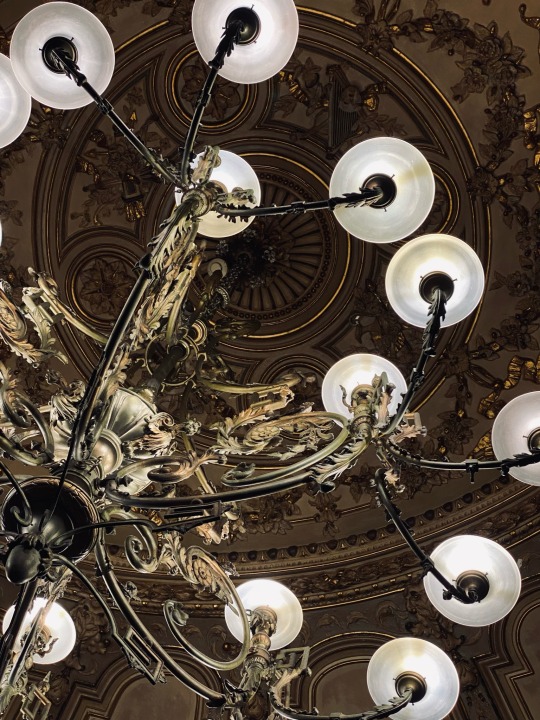

The Bellini Theater in Catania
11 notes
·
View notes
Text

Today is the 222. Birthday from the Great Composer Vincenzo Bellini (November 3.1801-September 23.1835).
Thanks for all this wonderful Operas.
#classical music#opera#music history#bel canto#composer#classical composer#aria#classical studies#maestro#chest voice#Vincenzo Bellini#Bellini#classical musician#classical musicians#classical voice#classical history#history of music#historian of music#music theory#music education#musicician#musicians#diva#prima donna
16 notes
·
View notes
Text

youtube
7 notes
·
View notes
Text

oh NO
#opera tag#opera#la sonnambula#the sleepwalker#but yeah that’s basically the entire opera#bellini#vincenzo bellini#opera comments
8 notes
·
View notes
Text
youtube
Vincenzo Bellini (1801-1835) - Ma rendi pur contento ·
Jorunn Torsheim ·
2 notes
·
View notes
Conversation
You: I Feel Pretty
Me: Son vergin vezzosa
#opera#opera shitpost#opera shitposts#i puritani#bellini#vincenzo bellini#west side story#i feel pretty#obviously i mean no disrespect to wss or leonard bernstein#i just thought son vergin vezzosa could be considered an opera equivalent of i feel pretty
10 notes
·
View notes
Text
I'm dying

According to Heine, Bellini spoke french very badly, or actually: «horribly, like a damned dog, risking to provoke the end of the world».
The last part is so strong and unique, like, not only does he sound like a dog who has been damned (which is already original) but he could actually cause the end of the world with his bad french??
14 notes
·
View notes
Text
youtube
3 notes
·
View notes
Text
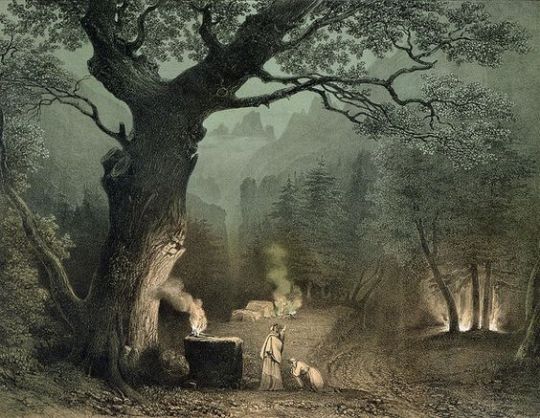
The Sacred Grove Of The Druids, From The Opera Norma By Vincenzo Bellini 1802-35 Engraving Art Print by French School
The Sacred Grove Of The Druids, From The Opera Norma By Vincenzo Bellini 1802-35 Engraving art print by French School. Our art prints are produced on acid-free papers using archival inks to guarantee that they last a lifetime without fading or loss of color. All art prints include a 1" white border around the image to allow for future framing and matting, if desired.
4 notes
·
View notes
Text
Raya Recounts: a brand-new series of overly-detailed opera summaries with unsolicited commentary!
Yeah, I have pulled yet another massive hiatus on these, but hopefully you’ll forgive me.
Episode 4: I puritani
I puritani (“The Puritans”) is a 3-act opera by Vincenzo Bellini. Bellini was one of the big BIG names among composers of the bel canto era, which also include Gioachino Rossini and Gaetano Donizetti (the composer for our first selection). Bel canto is Italian for “beautiful singing”, and Bellini was no stranger to that; in the world of opera, he is mostly applauded for the vocal lines he wrote, which tend to be absolutely beautiful, especially compared to his instrumentals (subjective opinion, sorry). Bellini’s works are significantly more obscure to the general public than those of the previous composers I have covered, but some people might be familiar with the aria “Casta diva” from his opera Norma.
Today’s opera was Bellini’s final work before his untimely death at age 33.
The libretto was written by Carlo Pepoli, based on the play Têtes rondes et cavaliers (“Roundheads and Cavaliers”) by Jacques-François Ancelot and Xavier Boniface Saintine (GOD, they have like sixty million different forms of their names on their works, so I went with IMSLP’s input). There doesn’t seem to be anything else that these three guys came up with that is less obscure than today’s selection.
The plot is known for being kind of flimsy, but the quality of the vocal music definitely makes up for it, and for the longest time it has been, and still remains, a favorite of the big opera houses to put on to show off their greatest stars’ vocal virtuosity.
You know the drill, same as always: bolding the solo characters’ names and giving potentially bad Italian translations for the important numbers. They are a bit more difficult to divide than the previous installment, so please bear with me.
This is for @carlodivarga-s, who suggested this title. Let me know if any of you have an opera you would like me to give the Raya Recounts treatment to!
Spoilers, of course!
Because this is a historical opera, let me clarify the historical context before I start; this is set in England during the English Civil War, which was a conflict between “Cavaliers/Royalists”, i.e., supporters of King Charles I, and supporters of the Parliament of England (or “Roundheads”, named such because of the cropped hairstyles that many Puritans, who formed a important number of members of that group, tended to sport, in contrast to the long ringlets that were fashionable at the royal court at the time). As you may have guessed, the conflict was about whether or not England should continue to be a monarchy and ruled by the so-called “divine right of kings”, and the whole shtick was followed by the monarchy being overthrown in favor of the Parliament, Oliver Cromwell ruling as Lord Protector for nearly 5 years, and the monarchy being restored years later with Charles II, son of Charles I.
You may have noticed that I am very much anti-monarchy (this is Tumblr, this is hardly going to get me cancelled), but please know that Puritans in this time and place remain known today for being humongous killjoys, who outlawed things such as theatre and Christmas on the grounds of these practices being supposedly sinful and whatnot. No wonder the term “puritanical” nowadays represents unreasonably rigid strictness. So historically, I'm not sure I would want to stand on either side.
I have to admit that I got most of that historical knowledge from the show “Horrible Histories”, though I did use more than this as a source in my research!
Anyway, back to our opera!
After a prelude in D major (which I noticed is a key very frequently used throughout the opera), Act 1, Scene 1 opens on a fortress in England, sometime in the 1640s or so, at dawn. According to the libretto, there are sentinels marching. We hear an offstage chorus setting the scene (Chorus: All’erta! All’erta! L’alba appari; “On your guard! On your guard! The dawn is appearing” or something like that). Then, the reveille sounds, represented in the orchestra by French horns; it is followed by a lengthy drumroll, after which a chorus of soldiers, led by Bruno, a tenor who somehow never gets a description in other summaries of this opera beside his name (I’ll assume he is a leader of the soldiers), enter while carrying weapons and anticipating a victory over the Stuart clan (i.e., the Royalist side). We now know that these people are Puritans.
Church bells and some organ music are heard. As the soldiers kneel down in prayer, singers offstage (who are somehow listed in the score as the principals) praise God and all his glory and stuff (O, di Cromvèl guerrieri; “O, warriors of Cromwell”. Yeah, we’ll get a bunch more of English names Italianized to a pretty ridiculous degree throughout this opera).
After that, a chorus of people from the castle come onstage, mingling with the soldiers and calling for celebrations; everyone present then sings the praises of one Elvira, a young maiden who has found true love and is to be married today (A festa!; “Let us celebrate!” or something like that).
Everyone leaves except Bruno. Riccardo, a baritone and a leader of the castle’s army, comes onstage and starts lamenting the loss of his beloved Elvira. Bruno encourages him to tell him about his troubles. Riccardo explains that before he went off to fight, Elvira’s father promised him her hand in marriage, but when he returned the evening before, he was told that Elvira is in love with a Cavalier named Talbo (an Italianized form of “Talbot”), and that nothing can change her heart, meaning that he had to be released from his engagement (Recitative: Or dove fuggo io mai?; “Now where shall I flee to?”).
Bruno tries to get Riccardo to chill, but Riccardo insists on wallowing in his heartbreak (Aria: Ah! per sempre io ti perdei; “Ah! I have lost you forever”. Unusually for a baritone, he doesn’t seem to have any thoughts of vengeance and murder, at least so far, which is quite a massive relief).
After some vocal acrobatics woven rather well in a mournful tune, some horns and trumpets sound. Bruno tells Riccardo that it’s the army calling him (Riccardo), and tries, to not much avail, to get him to forget about his love issues for now and instead focus on the fire of glory and patriotism. They both leave.
Scene 2 switches the scene to Elvira’s bedroom (I forgot to mention that she is the daughter of whoever owns the castle, but it’s rather easy to figure it out). Present there are Elvira, a coloratura soprano (i.e., a soprano who specializes in crazy vocal acrobatics) who is moping around sorrowfully, and Giorgio, a bass and her uncle, whom she very close to. So close, in fact, that she literally calls him her second father in her first line. As he embraces her, Giorgio asks Elvira the reason for her mopey-ness, and when he brings up her upcoming wedding, she immediately recoils and goes on about how she will go insane and die of grief if she has to be dragged to the altar against her will (hmmmmm, foreshadowing of some kind???) (Aria: Sai com’arde; “You know how it blazes”).
Okay, so we now know that Elvira hasn’t been told yet of the last-minute bridegroom switch, but when Giorgio tells her that she will get to be with her beloved Arturo (said Talbo guy mentioned earlier), she absolutely rejoices and embraces him. She asks him how this came to be, and he explains that the night before, her tears and prayers touched his soul to the point that he managed to tearfully convince his brother, i.e., her father, that she would die if she were to marry someone other than Arturo (Aria (at least listed as an aria for Giorgio in the libretto, though Elvira has a few lines): Piangi, o figlia; “Cry, o daughter”).
Horns are heard; it’s a signal of the guards. Elvira and Giorgio listen carefully as an offstage male chorus announces the arrival of Arturo Talbo. Elvira is so absolutely overjoyed that she claims not to be able to believe it (Duet: A quel nome; “At this name”).
Scene 3 takes us to a weapons room, where Elvira, Giorgio, Valton (Italianized form of “Walton”), Elvira’s father and a bass just like his brother, as well as a chorus of the people from the castle all gather to welcome Arturo. The chorus sings in praise of Elvira’s beauty and Arturo’s valor and the love match between them (Chorus: Ad Arturo onore; “Honor to Arturo”).
Then in comes the long-expected Arturo, a noble tenor, accompanied by squires and pages carrying wedding presents, including a veil. Arturo starts singing to Elvira all about his happiness stemming from his love for her, which used to make him sad back when they were not an approved match (Aria (tho with quite a few lines from the principals and the chorus, which makes it often labeled as a quartet in some sources): A te, o cara; “To you, o darling”, one of the most famous bits in the whole opera. It actually contains a written high C-sharp (C#5) for Arturo!!! Tenors gotta have some flexible highs to sing this role, and that will only become more prominent the farther we go). Elvira and Arturo express their joy, Giorgio and Valton ask for not a single shadow of sadness to cloud this happy moment, and everyone, including the chorus, calls on Heaven to smile upon this union.
After that, Valton says that he won’t be able to attend the ceremony, and gives Arturo a pass that will grant him safe conduct up till the church (the libretto calls it “tempio” (“temple”), which I know is a name for a Protestant church in some contexts, but I’m not really sure when it comes to the Church of England specifically), asking Giorgio to accompany them. He then addresses some unknown lady, telling her that the Parliament is asking for her, and that he is to escort her there. Said woman, a mezzo, despairs internally, then asks what the Parliament wants from her. Valton replies that he must obey this order without question.
Arturo asks Giorgio about her, and Giorgio explains that she is a prisoner who is believed to be a spy for the Stuarts. Arturo is struck with pity for the mysterious lady, and she internally notices his pitiful expression. Valton calls for the wedding preparations, as well as his departure, to proceed, and everyone leaves except for Arturo (after making sure he is not seen) and the unknown lady.
After briefly assessing him internally, the lady addresses Arturo, who tells her that if she needs anything, she can trust him. She confesses that she is in danger of dying soon, and he mentions that his father died supporting the Stuarts, and affirms his intention of saving her. She says her fate is already sealed, as she is none other than Enrichetta (Henrietta Maria), daughter of Henry IV of France and the widow of Charles I of England, which makes her the (former) Queen of England!!
Arturo, ever faithful to his Royalist duties, immediately insists on escorting Enrichetta to safety (man, it’s rare to see a tenor who puts duty above love), but she firmly believes that there is no hope left for her, and begs him to think of the danger, and especially of Elvira, whom he is literally meant to marry in mere minutes. Arturo begs her not to weaken his courage by mentioning the one he loves, and both go on and on about all this, until they are interrupted by an incredibly cheerful Elvira, who comes in all dressed in her wedding clothes and carrying her veil.
Elvira compares herself to an April lily and basically just describes her appearance, which includes roses in her hair and a pearl necklace (Polonaise (in this case, an aria in the style of a polonaise, which is a type of Polish folk dance with a 3/4 time signature (i.e., like a waltz)): Son vergin vezzosa; “I am a charming virgin”. Vocal acrobatics galore). As she sings, Arturo, Enrichetta and Giorgio (who has also come by this time, I guess) compare her disposition to a nightingale and the moon appearing through clouds at night.
Elvira asks Enrichetta to help her with the ringlets of her hair, and places her veil on Enrichetta’s head as Arturo and Giorgio ask her (Enrichetta) to excuse Elvira’s playful behavior. As Elvira continues to fool around, Enrichetta and Arturo continue praying for safety while Giorgio internally compares Elvira to a zephyr, a rainbow and a sylph. Then, Valton and the chorus come in calling for Elvira to get ready. She entrusts Arturo to give her back the veil later, before she leaves with Giorgio and nearly everyone else.
As Arturo and Enrichetta are left alone, Arturo notices that the veil hiding Enrichetta’s face might just be the thing that will help her escape safely, but before they can make a move, in comes Riccardo to stop Arturo from stealing his beloved (he thinks the woman under the veil is Elvira; ah, the operatic classic of not recognizing someone with a concealed face!), and he challenges Arturo to a duel to the death by swords, which he smugly accepts (Trio: Fermi! Invan, invan rapir pretendi; “Stop! In vain, in vain you try to kidnap” or something like that. This one was difficult to translate so I copied it from the aria-database). But Enrichetta steps in between them to stop them from fighting, at which point her disguise gets shed and Riccardo recognizes her as the prisoner.
Riccardo suddenly decides to let the two of them escape, and as Arturo bids an internal farewell to Elvira, we hear Elvira, Bruno, Giorgio, Valton and the chorus approaching. Of course, given the situation (opposing clans, rivals in love, etc.), Arturo asks Riccardo if he’s gonna snitch on them before they go beyond the walls of the fortress, and Riccardo swears that he won’t. Well, as the three characters briefly speak to themselves internally, we learn that Riccardo does not intend on keeping this promise and looks forward to Arturo’s downfall, while Arturo himself internally proclaims his everlasting love for Elvira, and Enrichetta looks forward to seeing her son (Charles II, I guess??). Arturo and Enrichetta finally leave, and Riccardo watches them escape (this is a fortress, after all).
Then in come Elvira, Bruno, Giorgio, Valton and the Chorus. Everyone asks Riccardo where Arturo is, and OF COURSE, the jealous snitch tells everyone that he is long gone, and everyone else sees that he has escaped with the prisoner. As Elvira cries out in despair, Riccardo and Giorgio call for soldiers to catch the two traitors, and everyone else joins in the call to arms.
But then, Elvira notices that the woman with Arturo in the distance is wearing a white veil, and that he is treating her as his bride and calling her Elvira, and this messes with her mind and makes her really, REALLY upset. Everyone around becomes incredibly worried about her. Then, she hallucinates Arturo coming back and she repeatedly tells him to come with her to the church. It becomes clear to everyone that Elvira has officially lost her mind in true operatic fashion, and they all pity her. Of course, they blame that traitor Arturo for this whole fiasco, and remark on how pure Elvira’s heart is for her to still love him as much as she does.
Then, Elvira’s mood suddenly switches again, and she sees (here, I’m not sure of she actually sees or “sees”) Arturo fleeing, and starts cursing him for abandoning her. As she expresses a delirious sort of rage growing inside her, everyone else continues cursing Arturo, and the curtain falls as they swear revenge.
And then Elvira dies of her insanity because it is a known fact that sopranos who have a mad scene in an opera ALWAYS die. :)
The end! ❤❤❤ This has been an overly-detailed opera summary with unsolicited commentary, I hope you-
Raya, stop messing around and misleading your readers, this is only the first act, no one has died, the opera is far from finished.
Sorry, sorry. Anyway, here it goes:
Act 2 (only one scene this time) opens in some random room in that same fortress. A chorus of people of the castle sing (to a tune that’s a slight tad joyful imo) in sadness about poor Elvira’s (who hasn’t died, by the way) insanity; she is crying all the time, and at one point she was seen wandering in nature, screaming “Have mercy! Have mercy!” (Chorus: Ah dolor! Ah terror!; “Ah, what pain! Ah, what terror!”).
Giorgio then comes in, and the chorus people ask him for updates on Elvira’s condition; she is currently resting, her mood keeps switching between sadness and happiness, and she sometimes has temporary moments of clarity. The chorus asks for more details, and Giorgio initially refuses out of sadness, but at the chorus’ insistence, he describes Elvira’s behavior, including wandering around with flowers around her hair while crying out “Where has Elvira gone? Where has Elvira gone?”, hallucinating herself getting married and then crying for Arturo to come back, as well as mistaking other people for Arturo, then realizing her error and crying and wishing for death, ye typical operatic mad scene stuff (Aria: Cinta di fiori; “Garlanded with flowers”). *Sighs in psychology ho*. Of course, everyone continues cursing Arturo.
Then Riccardo comes in with news that Arturo has been sentenced to death by the Parliament. Everyone considers this a rightful punishment for his betrayal, and Riccardo adds that Valton has been declared innocent of the whole thing. Riccardo asks Giorgio about Elvira, and Giorgio explains that according to doctors, only a sudden emotional shock, joyful or tragic, will restore Elvira’s state of mind (wait, isn’t that how amnesia is represented in media??). Riccardo gives orders that should Arturo (who is still on the run) ever be seen around here, he must be treated with no mercy.
The chorus leaves, and we hear Elvira offstage, asking to either be given back hope or to die. Riccardo and Giorgio pity her, of course. Then Elvira comes onstage, looking disheveled and clearly disturbed. She angsts about Arturo’s betrayal as Giorgio and Riccardo continue pitying her (damn, half of this opera is basically people crying for Elvira!!) (Aria: Qui la voce; “Here, the voice”). Then, Elvira notices Giorgio, whom she doesn’t recognize at first but then mistakes for her father, and joyfully assumes that he’s here to take her to get married. Then, she notices Riccardo (whom she seemingly mistakes for Arturo? I’m not sure) weeping. Their brief conversation leads her to acutely remember her heartbreak.
Then, Elvira smiles suddenly, and she hallucinates Arturo being here and calls for him to come back to her, seemingly in a mix of joy and pain, as Riccardo and Giorgio continue pitying her (Cabaletta (as we said 2 episodes ago, the more animated section of an aria, complete with vocal acrobatics): Vien, diletto; “Come, beloved”). The men tell her she should go rest, and she eventually leaves.
Giorgio tells Riccardo that he must save Arturo (Duet: Il rival salvar tu dèi; “You must save your rival”, still not 100% sure if this is how to spell the Italian “dèi”). Riccardo replies that he cannot, that it’s in the Parliament’s will for Arturo to die, and that he does not abhor him in any way. But Giorgio correctly guesses that Riccardo doesn’t actually want to save Arturo, because he is still jealous. Giorgio continues to insist on his point, saying that if Arturo were to go down, Elvira would go down with him, and that their ghosts would haunt him (Riccardo), but this does not move Riccardo.
Eventually, Giorgio manages to win Riccardo over, because of the fact that patriotism comes hand in hand with mercy. But they also agree that should Arturo ever come armed among the enemy ranks (there is a battle scheduled at dawn on the next day), he will perish at Riccardo’s hand. Both end the act singing a duet all about patriotism and the glory of dying in the name of freedom for the nation (Duet: Suoni la tromba; “Sound the trumpet”, another of the more famous bits of the opera).
(Fun fact: the melody of Suoni la tromba was used in my first school’s anthem, tho taken one half-step down. For privacy reasons, I obviously won’t make you listen to the school anthem, so have instead the whole actual Act 2 finale from Il rival salvar tu dèi to Suoni la tromba, sung by Samuel Ramey and Sherril Milnes. I used this specific recording in my 5th “Opera(s) as Vines” video. But just so you know, they take a few cuts.)
(Also, I think I read somewhere that this opera was meant to be only 2 acts, but the second act was split into two after Suoni la tromba. But I’m not sure, tho this might explain why Act 1 is longer than Acts 2 and 3.)
After a brief prelude in D minor that alludes to a hurricane (at least according to the score), Act 3 (also only one scene) opens in a wooded area near the fortress. We may or may not see some armed people walking around at some point, looking for someone, but they leave soon enough. Finally, a very exhausted Arturo runs in onstage. Seeing that he is all alone, he allows himself to take a break (Recitative: Son salvo, alfin son salvo; “I am safe, finally I am safe”). We learn that he is still on the run, and so far he has managed to outrun his pursuers. He expresses deep love for his homeland, which he remarks is especially prominent for him as an exile.
Suddenly, he hears the sound of a harp, followed by Elvira’s offstage voice, singing a song about a sad troubadour sitting at a fountain and singing a love song (Aria: A una fonte afflitto e solo; “At a fountain, afflicted and along”). Arturo immediately recognizes this tune as a song they used to sing in these woods back in the days of their still-not-really-approved courtship. He calls for her, but no one responds, so he resorts to singing that same song about that same, constantly-depressed troubadour sitting at a fountain, striking a harp and singing a sad song.
Suddenly, Arturo hears drumrolls and a military march, as well as an offstage male chorus, and he realizes that he is still being pursued, so he hides away as a bunch of men-at-arms come onstage, looking around for him, and he manages to remain unseen until they leave.
As soon as the men are gone, Arturo comes out of hiding, and he considers entering Elvira’s place and telling her everything, but then he realizes that doing that would be too dangerous for both himself and Elvira, so he decides instead to continue singing their song, hoping that it will reach her somehow. He now sings about an exiled pilgrim who is also constantly depressed, and whose story seems to mirror Arturo’s own situation, at least in my opinion.
At some point either during or after the song, depending on the director’s choices, Elvira shows up. She gets sad when the singing stops, and goes back to longing for Arturo, at which point he shows up in front of her, asking for her forgiveness. A joyful reunion between the lovebirds ensues.
Arturo goes on about how happy he is to behold her once more after such a long time (three months, to be exact). Elvira describes all the pain she experienced during his absence, which felt like not three months but three centuries for her. He then explains to her the whole shtick with the prisoner woman from Act 1, who was none other than the Queen herself, and about how he ran away with her in order to save her from a death sentence. Elvira is so struck by this piece of info that she feels a sudden clarity in her mind. He assures her that he loves her with all his heart and they sing a passionate love duet together, reaffirming their love for each other over and over, and promising to stay together forever (Duet: Vieni, vieni fra queste braccia; “Come, come into these arms”. It contains 2 written high D’s (D5) for Arturo!!! the latter of which can be shared with Elvira, depending on the singer). They may or may not kiss at the end, depending on the production, because, I mean. The music.
But this moment of ecstasy is short-lived for our lovers, as we hear a horn followed by some more drumrolls and that same military march from earlier. Arturo immediately knows it’s his pursuers, and Elvira starts speaking incoherently, which makes him realize her state of Operatic Insanity™. We hear a male chorus from offstage singing in praise of Cromwell’s England, and Arturo tries to get Elvira to go hide with him, but she believes that he’s trying to leave her again for that woman he ran away with, and so she physically blocks him and calls for reinforcements while he tells her to be quiet.
The entire chorus of soldiers and castle-people, as well as Riccardo and Giorgio, show up onstage, and when Riccardo and the soldiers announce that Arturo has been sentenced to death, Elvira’s shock is so intense that literally everyone notices; this seems to be the emotional shock required to cure her insanity.
One of those large ensembles typical of bel canto operas, where everyone is singing something different, starts: Arturo announces that he’d be happy to die alongside Elvira, Elvira basically says the same thing, and Giorgio, the female chorus and even fucking Riccardo himself all feel pity towards the lovers (Quartet with chorus: Credeasi, misera; “She believed, the wretched one”). But the soldiers demand to proceed with the execution, much to everyone else’s despair. After embracing Elvira and bidding her farewell, Arturo chides the soldiers for upsetting Elvira and begs them to keep it together for just one moment, to not much avail.
(Fun fact: this piece is known to contain a high F (F5) for Arturo. Yeah, you read it right, a fucking high F!!!!! It’s so borderline impossible to hit that most tenors resort to singing a D-flat (Db 5) instead, which is already pretty high. Even so, those who can reach the high F usually sing it falsetto. Listen for example to the ever-legendary Luciano Pavarotti sing it (high F at 4:51).)
But then, we hear the sound of horns, announcing the arrival of a herald, and therefore a message (Finale: Suon d’araldi?; “The sound of heralds?”). Letters are brought in, and after reading them, Giorgio and Riccardo announce to everybody that the Stuarts have been defeated, and the Royal(ist) prisoners have all been pardoned; England has been liberated! (well, I mean... given, well. Everything that Puritans at this time and place stood for, I’m kinda calling this into question. But for the sake of the opera, I’m gonna allow myself some suspension of disbelief.)
Wait, what?? A happy ending??? In my non-comic bel canto opera????? More likely than you think!!!!! Anyway, everyone celebrates and sings the praises of Cromwell, before wishing long days of happiness to the extremely joyful and more-in-love-than-ever Elvira and Arturo (who has therefore now been freed of his death sentence), the curtain drops of these joyous festivities and everyone lives happily ever after as far as we know, given that I’m not super-familiar with more of the deeper details of the historical context.
The end! ❤❤❤ This has been an overly-detailed opera summary with unsolicited commentary, I hope you enjoyed ;)
- Raya / rayatii
(PS: I wanna give a quick shoutout to the production of this opera by the Opéra Royal de Wallonie-Li��ge from 2004, which was the first (and so far only) production of this opera that I watched, and which really helped me with the making of this post. Having only watched one production while writing this made it more difficult than the previous installments, and I had my doubt at times, but I’m really glad I pulled through.)
(PPS: fun fact: okay, I hate the British royalty just as much as the next Tumblr user, but this was apparently Queen Victoria’s favorite opera, and she would refer to it as “dear Puritani”. It also apparently the first opera that she and her beloved Prince Albert attended together before marrying.)
(PPPS: while I was doing some deeply detailed translation research for this post, I accidentally learned that the Italian word “pompa”, as well as meaning “pump”, also means “blowjob”. I probably will never be able to look at this opera the same way again, and I’m really frustrated that Tumblr doesn’t have a spoiler option like Discord, meaning that I won’t be able to protect your eyes from this...)
#raya recounts#opera#opera summary#overly-detailed opera summary with unsolicited commentary#i puritani#bellini#vincenzo bellini#too many links#which opera do you want me to do next? give me your suggestions#i literally sacrificed so many hours during which i should have been practicing my singing in order to write this#even after having an opera-related stress-dream last night (of the being under-prepared kind)
7 notes
·
View notes
Photo



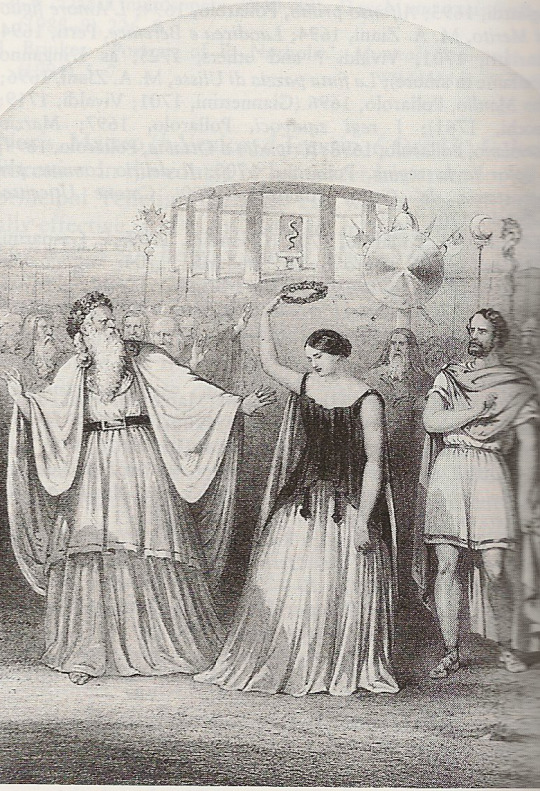

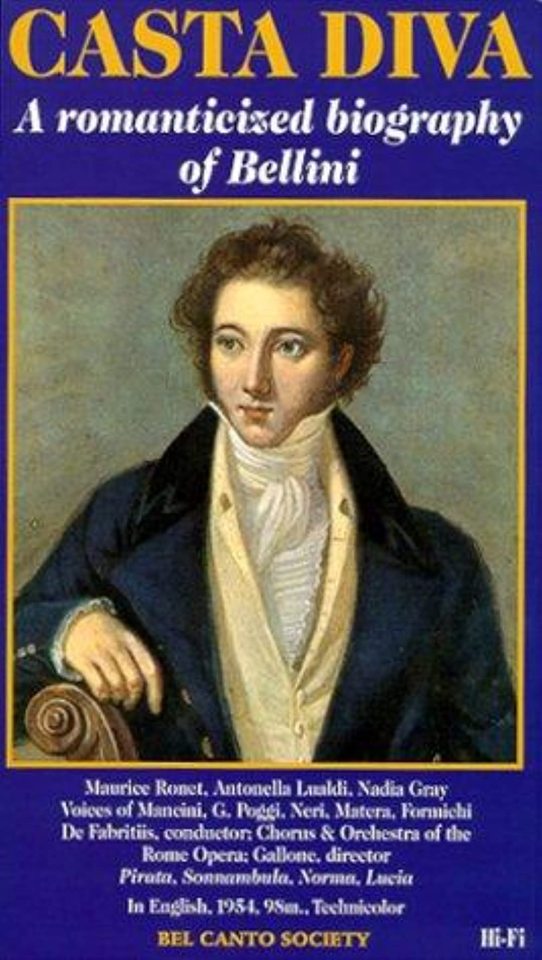
Opera 🎼 Norma ♪ Vincenzo Bellini ♪
youtube
Bellini - Norma, Casta Diva / Presentat°
New Mastering (Maria Callas, Ct. record.: T.Serafin 1954)
Norma : Maria Callas
Pollione : Mario Filippeschi
Adalgisa : Ebe Stignani
Oroveso : Nicola Rossi-Lemeni
Flavio : Paolo Caroli
Clotilde : Rina Cavallari
Coro del Teatro alla Scala, Milano
Maestro del coro : Vittore Veneziani
Orchestra del Teatro alla Scala, Milano
Direttore : Tullio Serafin
Recorded in 1954
New mastering in 2018 by AB for CMRR
Find CMRR's recordings on Spotify: https://spoti.fi/3016eVr
youtube
COMMENTAIRE COMPLET : VOIR PREMIER COMMENTAIRE ÉPINGLÉ
En Gaule, vers 50 avant Jésus-Christ, dans la forêt sacrée des Druides. Le Grand Prêtre Orovese, qui prêche la révolte contre l'occupant romain, invite son peuple à se rendre sur la colline pour fêter la pleine lune, leur chaste déesse. Le proconsul romain Pollione, a eu secrètement deux enfants de la Grande Prêtresse Norma, fille d'Orovese. Volage, il aime maintenant la jeune Adalgise et voudrait l'emmener à Rome — car il ne supporte plus ce peuple de barbares.
Sous la clarté de la lune, Norma coupe le gui avec une faucille d'oc et invite les Gaulois à préserver la paix. Elle dit ensuite à su servante son pouc Pollione, que les druides pourtant mettraient volontiers à mort. Adalgise, amoureuse de Pollione, demande aux dieux de lui épargner cette passion. Mais Pollione la rejoint et elle consent à se sauver avec lui. En tout innocence, elle va se confier à Norma. Évoquant sa propre destinée, Norma lui montre la plus grande compassion... jusqu'à ce que paraisse l'objet de cet amour, Adalgise, enfin mise au courant de la situation, jure de mourir plutôt que de partir avec le traître.
Norma, désespérée, voudrait tuer les enfants que lui a donnés Pollione. Elle n'en trouve pas le courage. Elle fait alors appeler Adalgise et lui demande d'épouser le Romain et d'emmener les enfants. La jeune fille rivalise en grandeur d'âme et promet de persuader le parjure : il reviendra à de bons sentiments! Les deux « rivales se réconcilient pleinement. Orovese apprend l'arrivée d'un nouveau proconsul, encore plus cruel que Pollione. Mais l'heure de la révolte ne tardera plus.
Adalgise a échoué : Pollione veut l'enlever de force. Norma jure de se venger dans des flots de sang et déclenche le grand soulèvement des Gaulois. Il faut aux druides une victime expiatoire : Pollione, arrêté, tiendra ce rôle. Dans un dernier entretien, Norma tente de le fléchir. Vainement : « Plutôt la mort, dit-il, que de renoncer à Adalgise ! » Elle lui montre que sa disparition sera le signal affreux carnage il réclame pourtant le supplice.
Elle appelle alors les Gaulois et fait préparer le bûcher pour une autre victime : une prêtresse qui a renié ses vœux. Elle avoue publiquement sa faute. supplie Orovese d'épargner les enfants et monte au bûcher avec Pollione.
En 1954, Maria Callas est dans la plénitude de sa voix ; elle est aussi à ce moment où elle va faire redécouvrir la vérité du bel canto romantique, débarrassé des traditions véristes, restituant la pureté de la ligne, la science des nuances, l'alchimie des inflexions pour construire un personnage depuis sa peau jusqu'à son sang, jusqu'à sa moelle.
Joachim Andersen - Bellini’s Casta Diva for Flute and Piano ..+ Presentation (rf.rc.: Toke Lund Christiansen) : https://www.youtube.com/watch?v=9LXwK...
Maria Callas - 90 Opera Arias, Carmen, Norma, Tosca, Traviata, Butterfly.. NEW MASTERING (Ct.rec.) : https://www.youtube.com/watch?v=VU1CZ...
Giacomo Puccini & Vincenzo Bellini PLAYLIST (reference recordings) : https://www.youtube.com/playlist?list...
7 notes
·
View notes
Text
Fantasia - VI
Fantasia – VI
Adolfo Fumagalli (19 ottobre 1828 - 1856): Grande Fantasia da concerto sui Puritani di Bellini op. 28. Orazio Sciortino, pianoforte.
youtube
View On WordPress
4 notes
·
View notes
Text

The Italian soprano Bianca Scacciati (1894-1948) was one of the formative interpreters of verismo. But she also shone in the bel canto repertoire. The photo shows her in the title role of Bellini's “Norma” at La Scala in Milan in 1930.
#classical music#opera#music history#bel canto#composer#classical composer#aria#classical studies#maestro#chest voice#Bianca Scacciati#dramatic soprano#soprano#La Scala#Vincenzo Bellini#Norma#classical musician#classical musicians#classical history#history of music#opera history#historian of music#musician#musicians#diva#prima donna
4 notes
·
View notes
Text
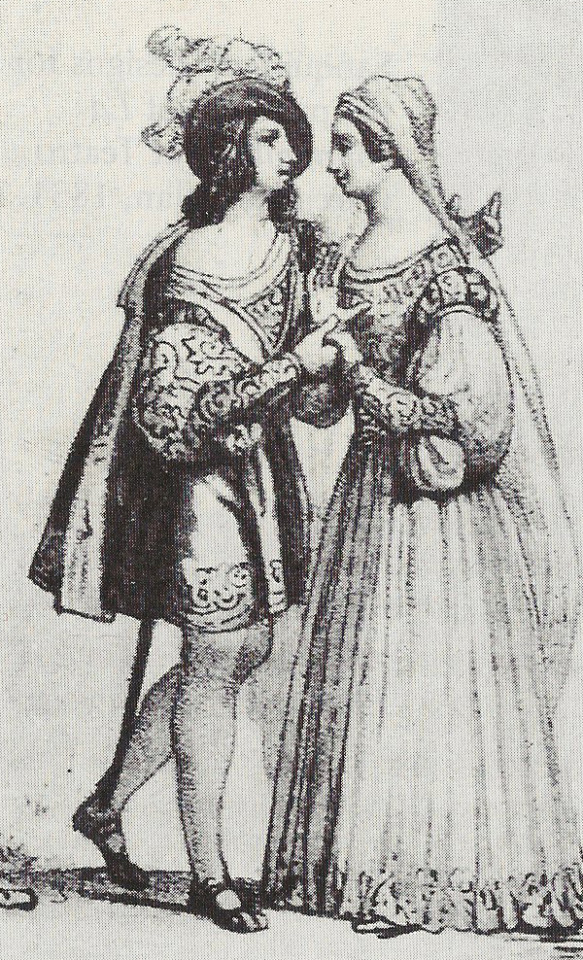
youtube
8 notes
·
View notes
Text
was today years old when i discovered that henrik ibsen apparently wrote a parody of norma???
(unfortunately it does not seem to be available in translation but here it is if you want to read the original)
(edited bc i’m actually not sure if it was in danish or not; that’s just what the apple translate told me when it said it couldn’t translate the page online)
#opera tag#opera#norma#plays#theatre#theater#bellini#vincenzo bellini#ibsen#henrik ibsen#wikipedia rabbit holes continue to enliven my life
10 notes
·
View notes
Text
youtube
Vincenzo Bellini (1801-1835) - Concerto für Oboe in E-Flat Major: Maesto e deciso - Larghetto cantabile - Alleggro alla polonese ·
Christoph Hartmann & Ensemble Berlin
6 notes
·
View notes